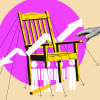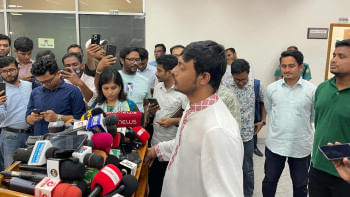A departing diplomat's parting comments
During the Meiji Restoration of 1868, the ruling oligarchy in Japan set out to "gather wisdom from all over the world". It sent "learning missions" abroad to study and absorb, as much as possible, every aspect of modern nations such as government institutions, courts, prison systems, schools, the import-export business, factories, shipyards, glass plants, mines, and other enterprises. Upon returning, mission members called for domestic reforms that would help Japan catch up with the West. This is what I call the "Meiji Moment", when nations, like individuals, learn by imitation.
It has been relevant for us in today's context since the outgoing Indian high commissioner talked to journalists on December 12. In his parting comments, he told them at the Indira Gandhi Cultural Centre in Dhaka that his country is ready to help Bangladesh strengthen its "democratic" institutions, including the Election Commission we consider unconscionable. Thus, he invoked the "Meiji Moment" for us in the reverse order. It wasn't our ruling oligarchy that initiated it. The emissary of a friendly country made his goodwill gesture.
So, what can India do to make our institutions more interesting? It can tell us how to do things in the right way. It can tell us how to reorganise their structures to make them more efficient. It can also provide us with experts, who can do a lot of hand-holding with our officials.
Are our institutions weak and wobbly due to any of these reasons? Most people will agree that none of this is the real problem. Instead, the real problem for us is that our institutions have lost their appetite for health. It's useful to have a nurse for a patient who can't administer medicine to himself. But who can ever help a patient who refuses to get well?
While we should be lauding the offer made by the Indian diplomat, we should also be lamenting the sclerosis that has made us so unresponsive to change. Our institutions are crippled not by lack of initiatives but by lack of intentions. It isn't that we can't do better because there is nobody to help us. We can't do better because we don't want to help ourselves.
The Indian high commissioner knew it. He knew it because he had spent long enough time in this country to understand its pulse. He knew it when he endorsed an election that has divided this country across the partisan line. He also knew he had already picked a side when he said that the elections were held out of constitutional compulsion.
The most sensitive thing he said was also the most insensitive one. He said India will always work with "the government of the day". He made no mention of the people of Bangladesh.
How can anybody help us strengthen democratic institutions if no distinction is made between a government and the people? If the government comes before people, it surely puts the cart before the horse. I am not sure how it escaped the learned mind of a seasoned diplomat that democracy in a country can't be strengthened unless its people are strengthened first.
Institutions, don't live in buildings, which house them or in people, who work there. Institutions live in customs, traditions, values and principles, which are upheld by courage, honour and conviction that are the dorsal columns of a nation's conscience. And a nation's conscience lives in the hearts and minds of people, democracy being its political manifestation.
In that sense, our institutions are living in a void, focusing more on style than on substance. A true friend should help this country cope with that crisis instead of pushing it deeper into its bosom.
Anybody willing to support this country should work with its people. Institutions strengthen people to keep a leash on governments; they don't strengthen governments to keep a leash on people. The envoy of the world's largest democracy appears to have missed that critical point.
The writer is the editor of the weekly First News and an opinion writer for The Daily Star.
Email: [email protected]

 For all latest news, follow The Daily Star's Google News channel.
For all latest news, follow The Daily Star's Google News channel. 








Comments